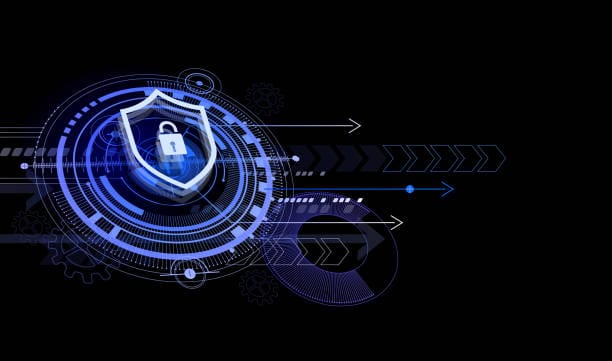Cybersecurity in Hotel Property Management Systems (PMS): Safeguarding the Hospitality Haven
- 18th January 2024
- Property Management System
Introduction:
In the era of digitalization, where technology has become intrinsic to the functioning of the hospitality industry, the need for robust cybersecurity in Hotel Property Management Systems (PMS) has never been more critical. As hotels embrace technological advancements to enhance guest experiences and streamline operations, they concurrently open themselves to potential cyber threats. This article explores the landscape of cybersecurity in hotel PMS, delving into the significance of protecting guest data, the evolving threat landscape, best practices, and the future of cybersecurity in the hospitality sector.
Section 1: The Significance of Protecting Guest Data
1.1 Guest Trust and Reputation:
- Trust is the cornerstone of the hospitality industry. Guests willingly share personal and financial information during their stay, trusting hotels to safeguard this sensitive data. A breach not only jeopardizes guest trust but also tarnishes the hotel’s reputation.
1.2 Legal and Regulatory Compliance:
- Stringent data protection regulations, such as GDPR and CCPA, require hotels to ensure the confidentiality and integrity of guest data. Non-compliance can result in severe financial penalties and legal consequences.
1.3 Financial Implications:
- A data breach can have far-reaching financial repercussions, from the immediate costs of addressing the breach to long-term impacts on customer acquisition and retention. Cybersecurity is, therefore, an investment in safeguarding the hotel’s financial stability.
Section 2: The Evolving Threat Landscape in Hospitality
2.1 Targeted Attacks on the Hospitality Sector:
- The hospitality industry has increasingly become a target for cybercriminals due to the vast amount of sensitive data it holds. From personal information to credit card details, hotels are attractive targets.
2.2 Insider Threats and Employee Training:
- Insider threats, whether intentional or unintentional, pose a significant risk. Employee training on cybersecurity best practices is crucial to mitigate these risks and create a culture of cyber awareness within the hotel.
2.3 Ransomware and Extortion:
- Ransomware attacks, where cybercriminals encrypt critical data and demand payment for its release, have become prevalent. Hotels must fortify their defenses against such attacks to prevent operational disruptions.
Section 3: Best Practices for Cybersecurity in Hotel PMS
3.1 Encryption and Secure Communication:
- Implementing end-to-end encryption for guest data during transmission and storage is a fundamental best practice. This ensures that even if intercepted, the data remains unreadable.
3.2 Access Controls and Authentication:
- Restricting access to sensitive information based on job roles and implementing strong authentication mechanisms, such as multi-factor authentication, adds layers of security to the PMS.
3.3 Regular Security Audits and Updates:
- Conducting routine security audits and promptly applying software updates and patches are essential to address vulnerabilities and ensure that the PMS remains resilient against emerging threats.
3.4 Employee Training and Awareness:
- Human error is a common factor in cybersecurity incidents. Regular training programs that educate hotel staff about phishing scams, password hygiene, and other cybersecurity best practices are imperative.
3.5 Incident Response and Data Backups:
- Having a well-defined incident response plan and regularly backing up critical data can minimize the impact of a cybersecurity incident. Quick detection and containment are vital in mitigating potential damages.
Section 4: The Future of Cybersecurity in Hospitality
4.1 Artificial Intelligence (AI) and Machine Learning (ML):
- AI and ML technologies are increasingly being employed in cybersecurity to detect anomalies and potential threats in real-time. In the future, hotels may leverage these technologies to enhance their cybersecurity posture.
4.2 Blockchain for Data Integrity:
- Blockchain, with its decentralized and tamper-resistant nature, holds promise for ensuring the integrity of guest data. It could be a transformative technology in securing transactions and maintaining a transparent ledger.
4.3 Collaborative Threat Intelligence Sharing:
- As cyber threats become more sophisticated, hotels may engage in collaborative threat intelligence sharing with industry peers. Sharing information about emerging threats can help the entire sector fortify its defenses.
4.4 Regulatory Adaptation:
- The regulatory landscape for data protection is continually evolving. Hotels must stay abreast of regulatory changes and adapt their cybersecurity measures to comply with emerging requirements.
Conclusion:
In the interconnected world of hospitality, where guest data is the lifeblood of operations, the imperative to fortify cybersecurity in Hotel PMS cannot be overstated. The consequences of a data breach extend beyond financial losses; they impact guest trust, brand reputation, and regulatory compliance. As hotels embrace technological innovations, they must concurrently adopt proactive cybersecurity measures to create an impregnable defense against the evolving threat landscape. The future of hospitality hinges on the industry’s ability to safeguard the sanctity of guest data, ensuring that every stay remains a secure and memorable experience.
